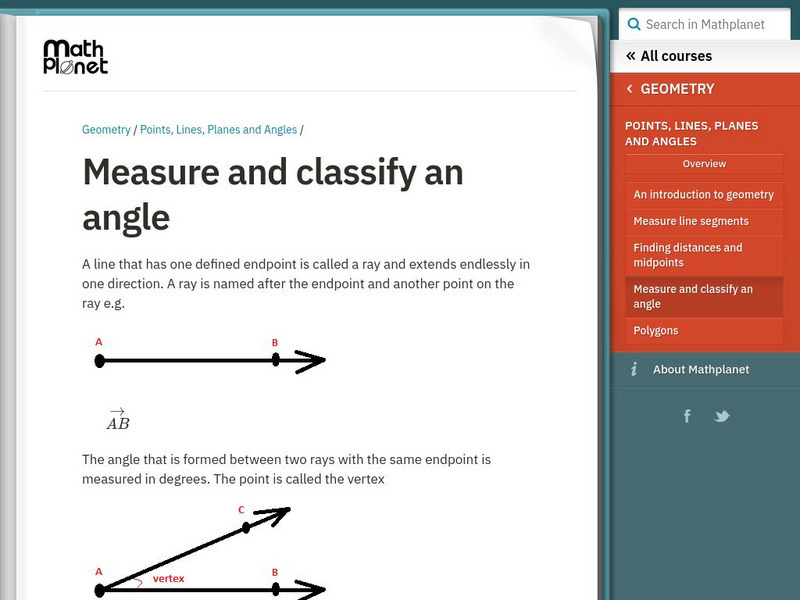EEWeb
Geometry: Shapes and Solids
An excellent resource for a geometry class, as well as for an electrical engineering course. A thorough reference sheet covers geometric shapes such as triangles, parallelograms, and circles, as well as 3-D shapes and the Pythagorean...
Georgia Department of Education
Analytic Geometry Study Guide
Are you looking for a comprehensive review that addresses the Common Core standards for geometry? This is it! Instruction and practice problems built specifically for standards are included. The material includes geometry topics from...
Centre for Innovation in Mamatics Teaching
Area, Perimeter and Volume
Develop young mathematicians' knowledge of two- and three-dimensional shapes with this geometry workbook. From learning about the classifications of different shapes and figures to calculating their area, perimeter, and volume, this...
Willow Tree
Common Geometric Figures
Geometry could be called the study of figures. An overview of the figures found in a typical geometry course contains a study of different triangles, quadrilaterals, and regular polygons.
Willow Tree
Area of Common Geometric Figures
Scholars can use area formulas, but can they apply what they know about area? The lesson challenges learners to think logically while practicing finding area of shapes such as rectangles, circles, parallelograms, triangles, and other...
Math Planet
Math Planet: Geometry: Measure and Classify an Angle
Explains the terms and symbols used to discuss line angles, what an angle is, and the types of angles. Includes short video lesson demonstrating how to use a protractor to measure an angle. [0:57]
Free Math Help
Free Math Help: Geometry: Parallelograms: What Is a Parallelogram?
The lesson discusses parallelograms. The resource examines facts, diagonals, and sides of a parallelogram. Explanations and examples are included.
Homeschool Math
Homeschool Math: Line Symmetry
Geometry lesson on line symmetry with practice exercises.
Oswego City School District
Regents Exam Prep Center: Polyhedra
View and learn about five different polyhedra: tetrahedron, octahedron, icosahedron, hexahedron, and dodecahedron. Learn what Euler's Polyhedra Theorem is, and see examples of non-polyhedra as well.








